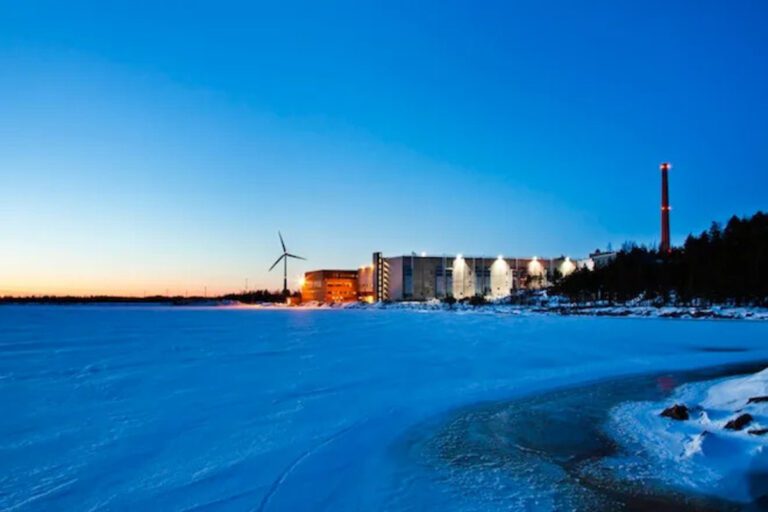🎧 Listen to This Article
HELSINKI – Finland’s combination of cool climate, affordable renewable energy, and cutting-edge digital infrastructure is attracting major tech giants, including Google, Microsoft, and Equinix, to establish data centers in the country. This is driving not only industry growth but also providing a green solution to the energy-intensive digital economy.
A Digital Hub with Environmental Benefits
As the global demand for data and digital services skyrockets, the environmental impact of running large-scale data centers has come under increasing scrutiny. From massive electricity consumption to the need for cooling systems, the ICT sector is facing mounting pressure to adopt sustainable practices. The rise of generative AI and its need for computational power only adds to this burden.
The University of California recently highlighted the energy and water consumption required for even small AI tasks, such as generating a 100-word email using ChatGPT, which uses as much electricity as leaving 14 LED bulbs on for an hour and consumes more than half a liter of water. As data consumption grows, companies are increasingly seeking environmentally friendly locations to host their infrastructure.
Finland offers a powerful solution, with its strategic natural advantages and high-tech infrastructure aligning perfectly with the needs of modern data centers.
Economic & Compliance Impact – The Business Case for Data Centers in Finland
Finland’s appeal to global tech companies lies in its combination of affordable, clean energy, and robust infrastructure. With over 50 construction-ready data center sites available, Finland offers flexibility for a wide range of data center operations. These locations are pre-equipped to handle large-scale projects with capacities exceeding 1,000 megawatts.
For companies like Google, Microsoft, and Equinix, Finland’s energy policy and environmental conditions are a major draw. Finland’s renewable energy accounts for over 60% of its grid supply, with electricity costs among the lowest in Europe. Furthermore, the country’s cooling system benefits from an abundance of fresh water—approximately 20,000 cubic meters per person annually—offering a sustainable solution for the heat-intensive demands of data centers.
“Finland is really ahead of the game in terms of energy infrastructure. With the grid powered by renewables, we offer the lowest electricity tax rates in the EU, and our grid reliability is unmatched,” says Jouni Salonen, Senior Advisor at Invest in Finland.
Stakeholder Reactions – Tech Giants Lead the Way
Google, Microsoft, and other international players have been pioneers in Finland’s data center boom. Google’s initial investment in the port city of Hamina in 2009, in an old paper mill, laid the groundwork for future expansion, and the company has since doubled its capacity with a EUR 1.2 billion investment.
Microsoft, in partnership with Fortum, is taking the innovation further by utilizing excess heat from its data centers to feed into Finland’s district heating system, reducing CO2 emissions by 400,000 tons annually. This collaboration is set to meet up to 40% of local heating needs, marking the largest such initiative globally.
“Finland’s mix of affordable, renewable energy, abundant water resources, and top-tier infrastructure makes it an ideal choice for tech companies looking to reduce their carbon footprint,” noted Peter Sundström, CEO of Fortum.
What to Watch
As the demand for sustainable data center locations continues to grow, Finland is expected to see more international and domestic players investing in its infrastructure. Several large-scale projects are already underway, with new data centers planned by companies like Bilt Tek, Hyperco, and Google, as well as regional players like Fortum.
The future looks bright for Finland as it strengthens its position as a data center hub in Europe. The Far North Fiber project, set to complete by 2026, promises to enhance the country’s already world-class connectivity, making it even more attractive for tech giants. Additionally, Finland’s ongoing leadership in data privacy, with its robust cybersecurity landscape, ensures that data hosted within the country remains secure and well-regulated.
For further details, clarification, contributions, or any concerns regarding this article, please contact us at editorial@tax.news. We value your feedback and are committed to providing accurate and timely information. Please note that our privacy policy will handle all inquiries



